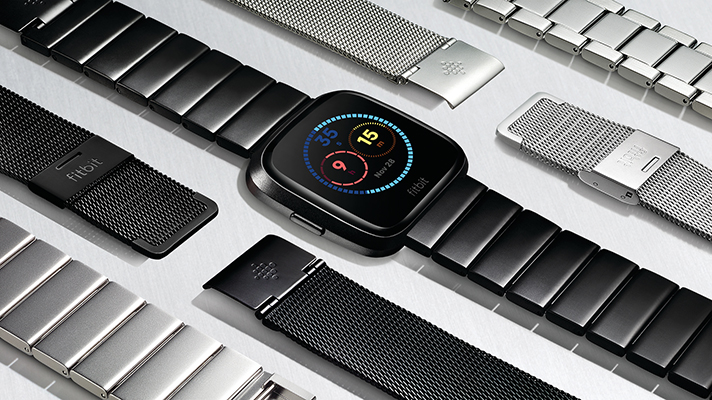
Fitbit has launched an in-app study the company says could help develop an algorithm for detecting potential COVID-19 cases prior to symptom onset.
Device owners over the age of 21 who live in the U.S. or Canada who either had a confirmed case of COVID-19 or recently experienced symptoms consistent with the disease are invited to take part in what the company has dubbed the Fitbit COVID-19 study.
Along with providing their recent device data, these users will be asked to answer a series of questions found within the Fitbit app's Assessments & Reports section. They ask participants about their COVID-19 or flu history, whether they experienced or are still experiencing disease symptoms, and other information about medical history and demographics.
Device owners must opt in if they are interested in participating and sharing their data, and may withdraw from the study at any time, according to the company.
WHY IT MATTERS
The widespread need for more extensive testing has left individuals and public health groups alike uncertain as to the true burden of COVID-19 in their community.
Although they're no substitute for comprehensive testing, Fitbit hopes that symptom history and long-term vitals data collected at scale could help build an objective profile of COVID-19 cases. Identifying these potential infections early can help encourage individuals to seek care or self-isolate.
THE LARGER TREND
Announced yesterday, the Fitbit COVID-19 Study builds on a previously announced research partnerships with the Scripps Research Translational Institute and the Stanford Medicine Healthcare Innovation Lab. These efforts similarly focus on using wearable-collected data to spot early cases of infectious diseases, although CEO James Park recently mentioned that the company is also looking to develop new ventilator technology in light of the pandemic.
The latest research project also comes just a few weeks after the unveiling of the Fitbit Heart Study, a large-scale consumer-health study that will use the devices' photoplethysmography (PPG) sensors to passively and continuously monitor wearers' heart rates. By doing so, the company wants to fine-tune an atrial fibrillation-detection algorithm for regulatory clearance.


















